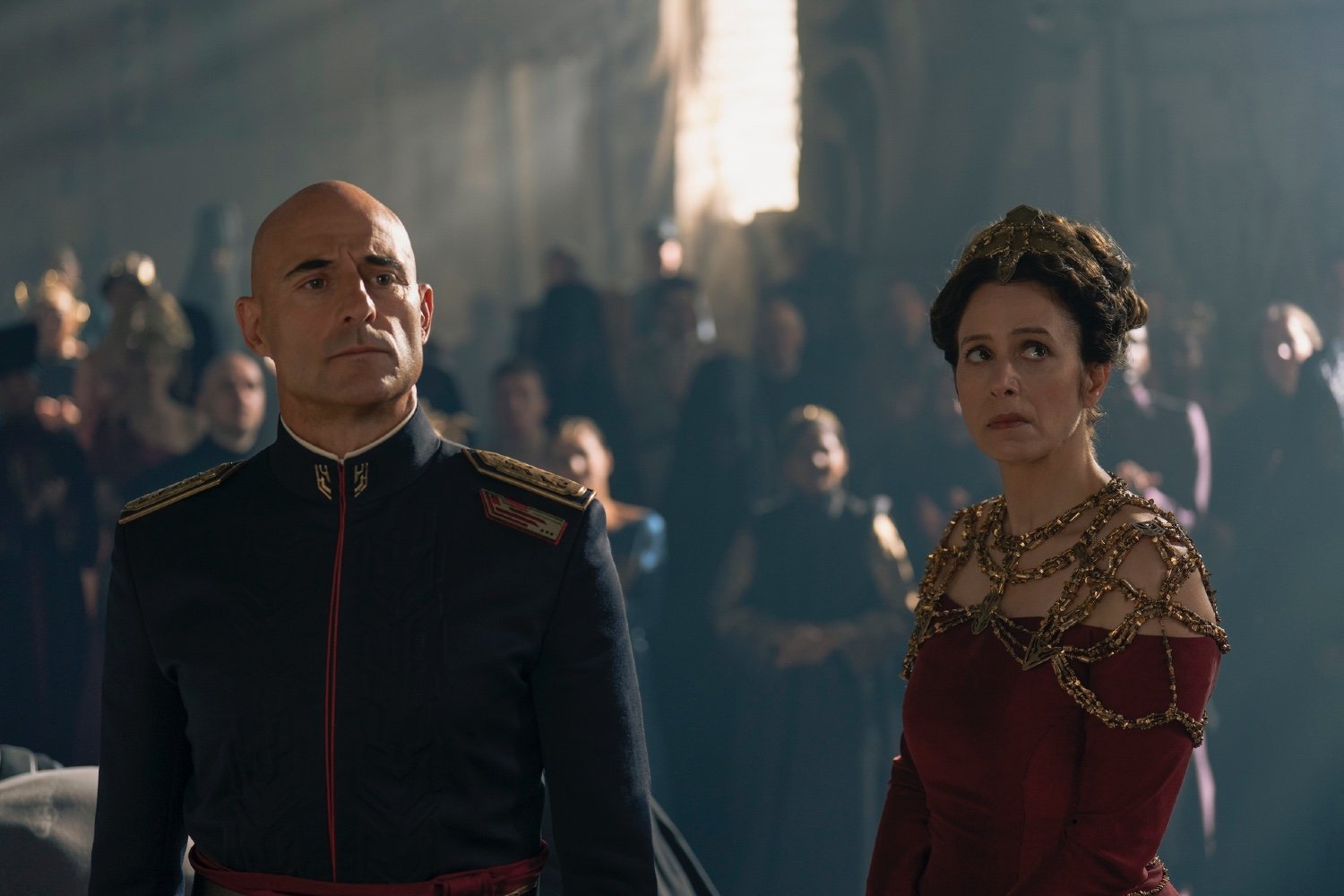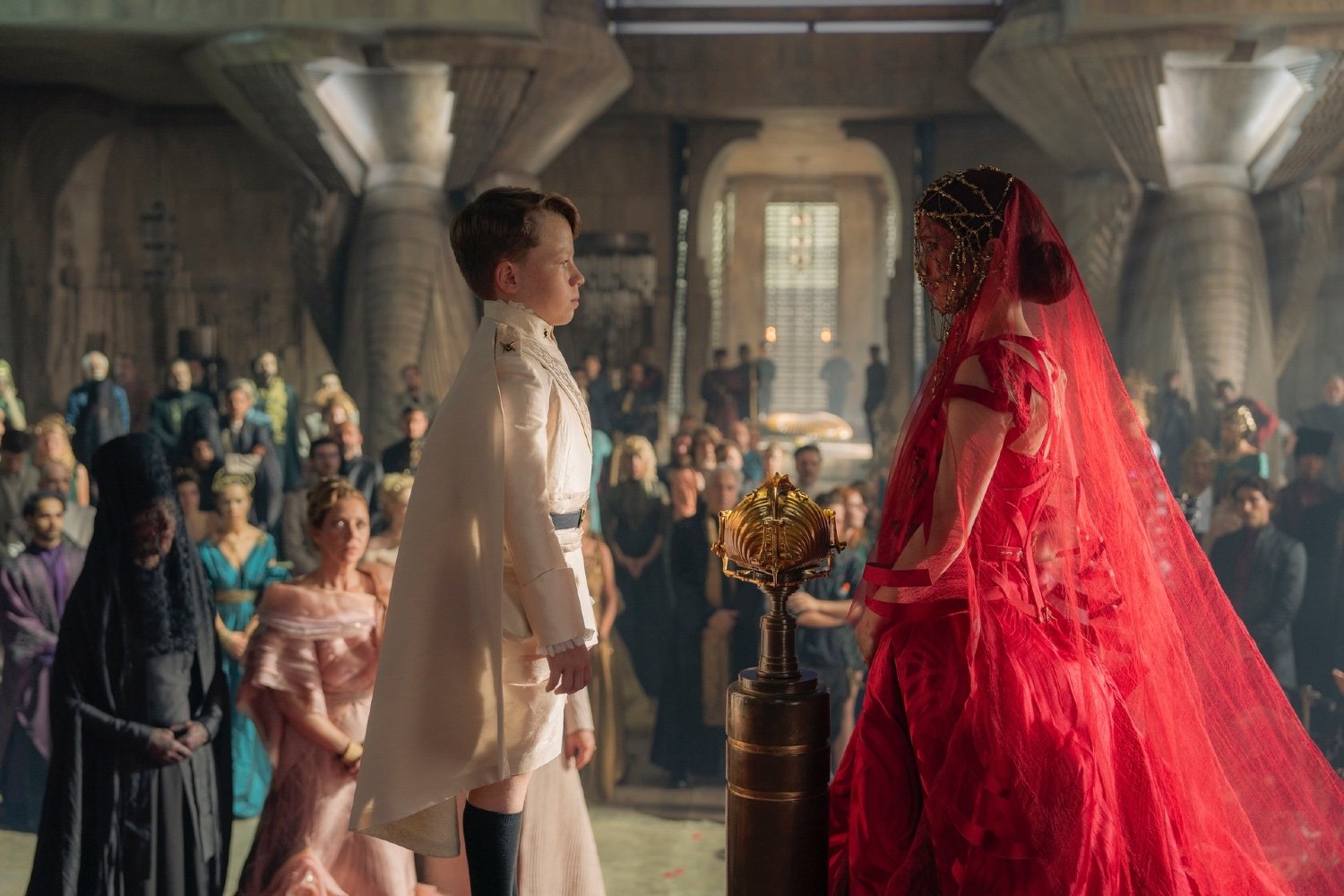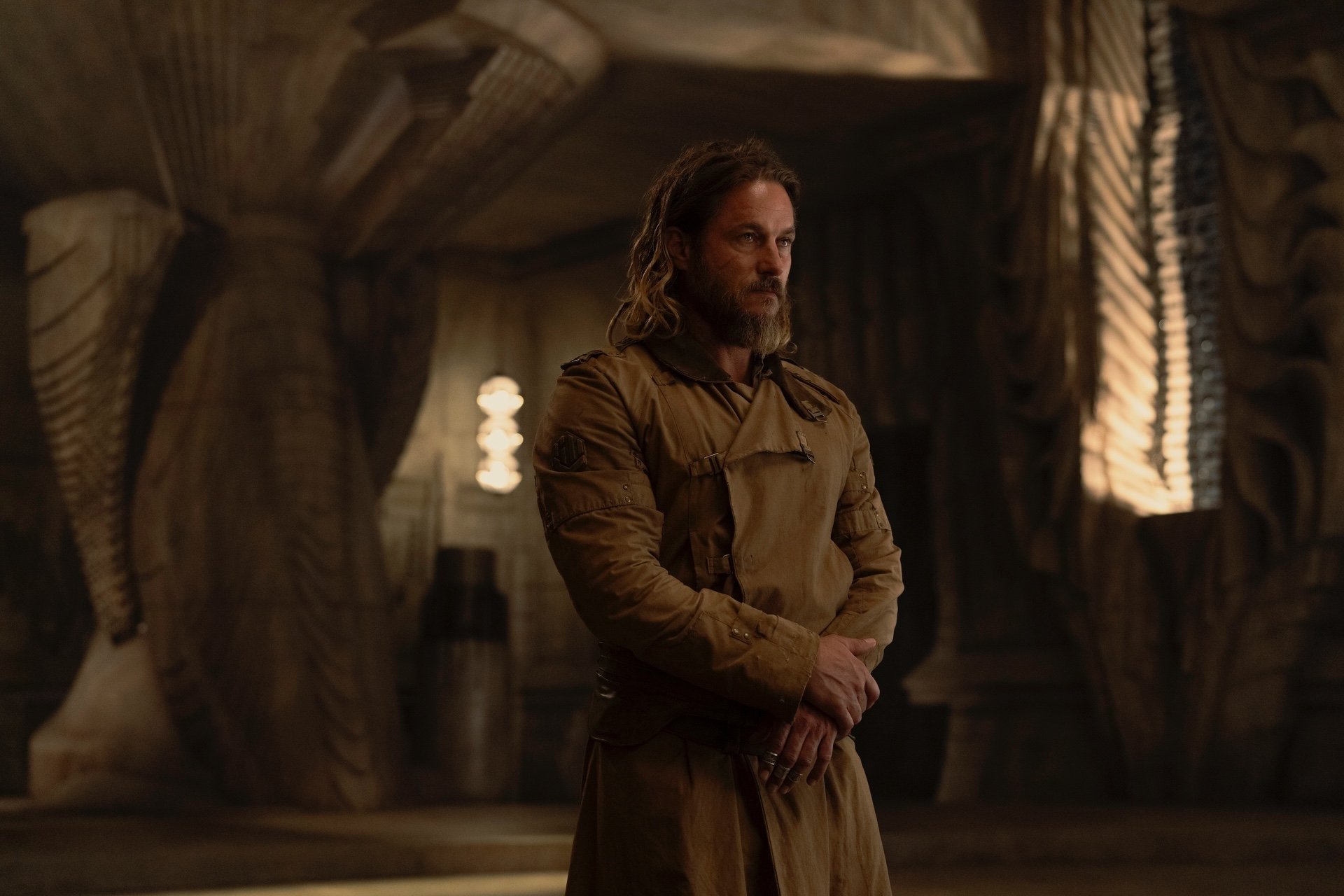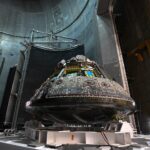To enjoy Dune: Prophecy, you don’t need to have watched Denis Villeneuve’s Dune or Dune: Part Two, or have read Frank Herbert’s Dune novels (including Sisterhood of Dune, released in 2012 and written by Herbert’s legacy-continuing son Brian Herbert with Kevin J. Anderson). Having a certain knowledge of the world is certainly a bonus, but the new HBO series—set 10,000 years before the birth of Paul Atreides—infuses its story with intrigue that will feel familiar to fans of other recent streaming adaptations of big genre works: fellow HBO shows Game of Thrones and House of the Dragon, of course, but also Foundation and Wheel of Time.
But just because it’s familiar (power struggles in the ruling class; a shadowy religious order that puts its own interests first; a rugged stranger who suddenly drops in from a faraway land to disrupt everything) doesn’t mean it’s not entertaining. And the fact that it’s Dune lends a certain overlay of sci-fi gravitas to almost everything. It’s a prequel, so we know where things will eventually end up. But 10,000 years allows an awfully long time before Paul emerges into the universe, much less mounts a sandworm and approaches his destiny.
Another element that makes Dune: Prophecy easy to climb aboard is that it’s not exactly subtle. Much like the Villeneuve movies, we get an epigraph at the very beginning of the first episode, “The Hidden Hand” (it reads “Victory is celebrated in the light, but it is won in the darkness”), followed by an exposition-laden opening flashback introducing Valya Harkonnen—a last name we know to shudder at—and backgrounding Prophecy‘s chief plot arc.
After humanity emerged victorious from its war with “thinking machines,” the general understanding was that the Atreides family were heroes, and the Harokonnens were cowards. But was that accurate—or just the result of who got to spin the narrative first?
To that end, Valya (played as a young woman by Jessica Barden, and in Prophecy‘s main timeline by Emily Watson) gives us another neon-bright theme to consider (“What holds more truth: history or prophecy?”) as we get a glimpse of the Bene Gesserit’s formation under the guidance of Raquella (Cathy Tyson), a war hero who becomes the group’s first Mother Superior.
Women who join the sisterhood learn to discern truth from lies, and are assigned out to the great houses to help (and influence) their leaders in making decisions. As we see, the enhanced powers Lady Jessica taught to Paul in the Dune movies—”the voice,” for instance, which we see used for apparently the first time here—are soon incorporated into the training, in no small part thanks to Valya, who becomes the Sisterhood’s leader after Raquella dies.
But she doesn’t ascend peacefully; Valya and her sister Tula (Emma Canning in her younger version; Olivia Williams in the main story) are big believers in the Sisterhood’s eugenics program to “breed better leaders”—rulers the group can manipulate in order to prevent a doom-laden prophecy from coming true. Valya’s ultimate prevention plan is to maneuver an actual member of the Sisterhood onto the throne. Not everyone is in agreement, including Raquella’s own granddaughter—and Dune: Prophecy wastes no time in showing us how ruthless Valya can be when it comes to getting her way.

When Dune: Prophecy‘s main story kicks in (30 years later, 116 years after the robot war—but still 10,148 years pre-Paul), we meet the chess pieces Valya is working with. Mark Strong plays Emperor Corrino, weary and cautious leader of the Imperium, whose biggest worries revolve around growing troubles on Arrakis (hey, we know that place!), where high-value spice mining operations are being threatened by either Fremen attacks or an insurgency from within, depending on who you believe. It takes 20 minutes or so, but the line “the spice must flow” does indeed find its way into Dune: Prophecy.
Emperor Corrino is also dealing with/dreading the wedding of his daughter, Ynez (Sarah-Sofie Boussnina) to a much, much younger suitor—a match made for political reasons, but also so that Inez can head to the Sisterhood’s homeworld after getting hitched. There, she’ll spend a decade training before returning to her royal duties, eventually rising to power and becoming “one of ours on the throne,” following Valya’s plan to the letter.
Also in the mix: the outspoken Empress Natalya (Jodhi May); Inez’s flirty half-brother Constantine (Josh Heuston); and hunky royal swordmaster Keiran Atreides (Chris Mason), who sparks with Ynez but also did you notice his last name? Definitely going to need to keep an eye on that guy.
Another character whose purpose is to stir the pot is Desmond Hart (Travis Fimmel), a soldier who blusters in from Arrakis claiming to be the sole survivor of a spice-mine catastrophe, which he blames on insurgents, but whose motivations go far beyond “guy with a remarkable tale of survival.” We don’t know yet what’s driving Desmond’s intentions, but we do know he has some opinions about the level of control exerted by the Sisterhood, referring to them as “witches”—and he’s unafraid to tell the Emperor that he’s not so sure eliminating all technology was the best course of action.
He also raises a very good point about the fact that spice profits are hogged by the great houses, never shared with the regular folks who risk their lives to harvest it.

Desmond’s wedding-crashing brings tragedy—he causes the agonizing death of both the young groom-to-be and the Emperor’s personal Truthsayer, who perishes after she returns to the Sisterhood homeworld. The purpose of her visit: to tell Valya and Tula about a horrific nightmare that seemingly revealed the nightmarish fallout that could come from Ynez’s impending marriage.
Valya might be all about prophecy, but she dismisses the dream—and she doesn’t predict the chaos Desmond unleashes. It’s left to a future episode for her to figure out her next move, now that her carefully orchestrated matchmaking has gone up in smoke.
While there was quite a bit of place-setting and character-introducing in “The Hidden Hand,” and we also got some high-stakes wedding drama (George R.R. Martin would approve), the episode’s most intriguing scenes were the ones set within the Sisterhood’s training grounds. “If you like barren landscapes and minimalism, you’ll be very happy,” Constantino jokes to Ynez about her future home, but while the visuals might be bleak, the characters are colorful as hell: beyond the Harkonnen sisters, the place is mostly populated by acolytes with variously troubled backgrounds and equally varied personalities, which will clearly come into play as the series progresses.
It’s no small feat to train yourself to become a nearly super-powered being—as young Valya puts it, to “push boundaries of what it means to be human”—and truly it’s the Sisterhood that sets this show apart. In a landscape of fantasy series that’ve followed similar plotlines—and in a world where two blockbuster Dune movies have already established what will become of Arrakis, the Harkonnens and Atreides, and that freaky royal breeding program—here’s hoping Dune: Prophecy devotes most of its screen time to the secrets of sci-fi sorcery.

New episodes of Dune: Prophecy, which will run for six installments, arrive Sundays on HBO and Max.
Want more io9 news? Check out when to expect the latest Marvel, Star Wars, and Star Trek releases, what’s next for the DC Universe on film and TV, and everything you need to know about the future of Doctor Who.
Read the full article here












